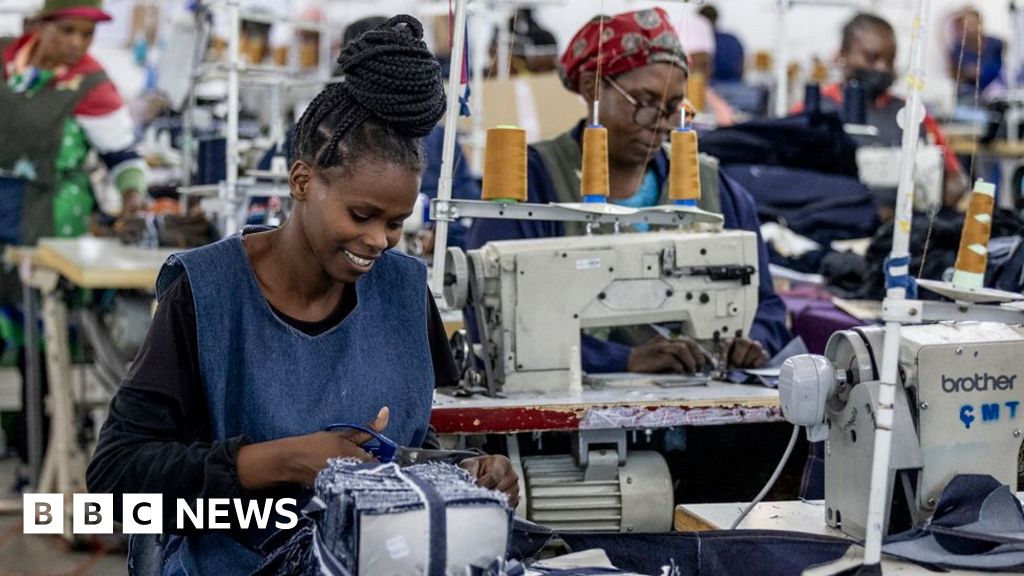Trade War's Toll: African Nations Feeling the Pinch of Trump-Era Tariffs
The ripple effects of the US-China trade war, initiated during the Trump administration, continue to be felt globally, with African nations bearing a significant, often overlooked, burden. While the direct confrontation was between two economic giants, the resulting tariff hikes and market disruptions have had a cascading impact on African economies, impacting everything from agricultural exports to manufacturing and investment. This article delves into the specific ways African nations were affected and the lasting consequences of these trade policies.
The Unintended Consequences: How Tariffs Hurt African Economies
The imposition of tariffs on Chinese goods led to several detrimental effects on African economies, primarily through:
-
Reduced Demand for African Exports: With increased costs for Chinese goods in the US market, American businesses sought cheaper alternatives, often sourcing from other regions, squeezing the market share of African exporters. This was particularly impactful for countries heavily reliant on exporting agricultural products, raw materials, and textiles to China and, indirectly, the US.
-
Disrupted Supply Chains: Many African businesses relied on intermediate goods and components from China for their manufacturing processes. Increased tariffs on these inputs made production more expensive, reducing competitiveness and profitability, impacting industries from clothing to electronics.
-
Decreased Foreign Direct Investment (FDI): The uncertainty created by the trade war discouraged foreign investment in Africa. Investors, wary of volatile global markets, diverted funds to more stable regions, hindering economic growth and development initiatives across the continent.
-
Increased Prices for Essential Goods: Tariffs on imported goods, including essential commodities, led to higher prices for consumers in many African nations, impacting the cost of living and further straining already fragile economies.
Specific Examples of Impact: Case Studies from Across Africa
While the impact was widespread, certain African nations experienced more pronounced effects. For example:
-
Kenya's flower industry, a significant exporter to the European Union, faced reduced demand due to increased competition from other flower-producing nations benefiting from redirected trade flows.
-
Countries reliant on raw material exports, such as Zambia (copper) and the Democratic Republic of Congo (coltan), saw decreased prices and reduced demand as global trade patterns shifted.
-
Nigeria's textile industry, already struggling with competition from cheaper imports, experienced further challenges due to increased import costs and reduced access to Chinese machinery.
Long-Term Implications and Lessons Learned
The trade war's impact on African nations highlights the vulnerability of developing economies to global trade shocks. The experience underscores the need for:
-
Diversification of export markets: African nations need to reduce their dependence on a few key trading partners and actively seek new markets for their products.
-
Strengthening regional trade integration: Increased cooperation among African nations through initiatives like the African Continental Free Trade Area (AfCFTA) can create larger, more resilient markets.
-
Investment in value addition: Focusing on processing raw materials domestically rather than exporting them in their raw form can increase economic returns and create more high-skilled jobs.
-
Promoting greater resilience to external shocks: Investing in infrastructure, education, and good governance can create a more stable economic environment less susceptible to global trade disputes.
Looking Ahead: Navigating Future Trade Challenges
The experience of the Trump-era trade war serves as a crucial lesson for African nations. By proactively addressing their economic vulnerabilities, promoting diversification, and strengthening regional integration, they can better withstand future shocks and build more resilient and prosperous economies. The future of African trade requires strategic planning, collaboration, and a focus on long-term sustainable development.
Keywords: Trade war, Trump tariffs, Africa, African economies, economic impact, global trade, supply chain disruption, foreign direct investment, export markets, African Continental Free Trade Area (AfCFTA), economic diversification, sustainable development.
Call to Action: Learn more about the AfCFTA and its potential to enhance economic resilience in Africa by visiting [Insert relevant link here].
